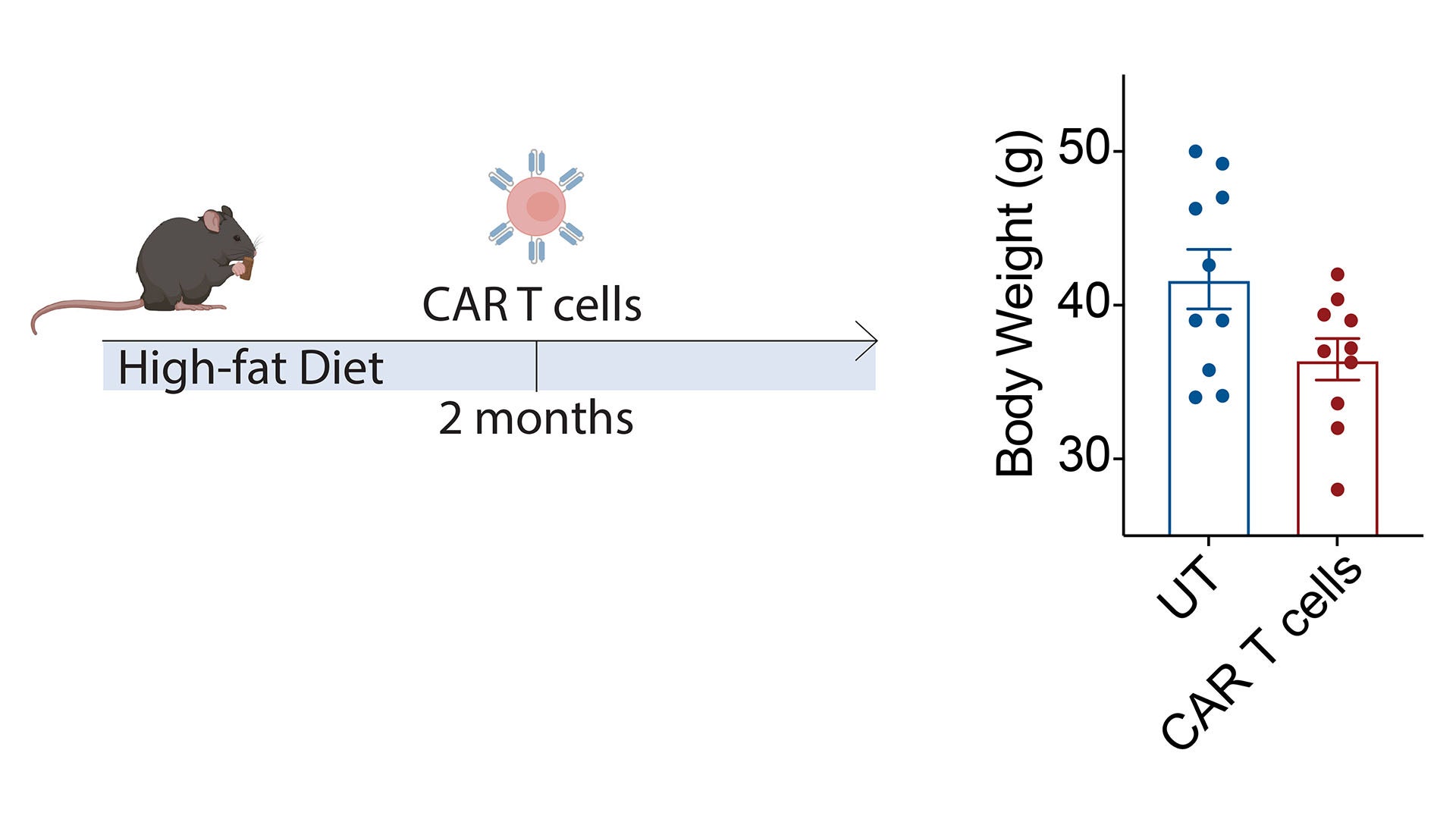Reprogrammed T cells make mice (and maybe us) age slower
Date: 26.1.2024
Researchers have used reprogrammed CAR T cells, usually used as a cancer treatment, to target the senescent cells that contribute to aging and later-life diseases. After one treatment, old mice showed improved metabolism and exercise tolerance, while young ones aged slower and were protected from age-related diseases like obesity and diabetes for life.
 T cells fulfill crucial roles in the body’s immune system. They can act as ‘killer’ cells, attacking cells infected with a virus or other pathogen, or as ‘helper’ cells, supporting B cells in producing antibodies. They can also be engineered to fight cancer. In CAR T-cell therapy, a patient’s own T cells are modified in the lab to produce surface proteins called chimeric antigen receptors (CARs) that recognize and bind to specific antigens on the surface of cancer cells, which they then destroy.
T cells fulfill crucial roles in the body’s immune system. They can act as ‘killer’ cells, attacking cells infected with a virus or other pathogen, or as ‘helper’ cells, supporting B cells in producing antibodies. They can also be engineered to fight cancer. In CAR T-cell therapy, a patient’s own T cells are modified in the lab to produce surface proteins called chimeric antigen receptors (CARs) that recognize and bind to specific antigens on the surface of cancer cells, which they then destroy.
In a new study, researchers from Cold Spring Harbor Laboratory (CSHL), New York, discovered that these CAR T cells can be reprogrammed to target senescent cells, thought to be involved in aging and many of the diseases encountered in later life.
Aware that senescent cells carry the cell-surface protein urokinase plasminogen activator receptor (uPAR), the researchers first examined the association between the protein and aged tissues. Immunohistochemical analysis confirmed an age-associated increase in uPAR protein in the liver, adipose tissue, skeletal muscle and pancreas.
The researchers next created uPAR-targeting CAR T cells, which they tested on naturally aged (18-to-20-month-old) mice. After injection with a single dose, the CAR T-cell-treated mice were healthier than the control animals.
Image source: Cold Spring Harbor Laboratory.























